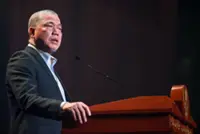LIKE almost every other person on this planet, Malaysia’s French-speaking ambassador to South Korea is captivated by Korean cinema.
“It stands out for its artistic depth and technical excellence. Korean films often explore complex social themes and human experiences with remarkable storytelling and high production values.





